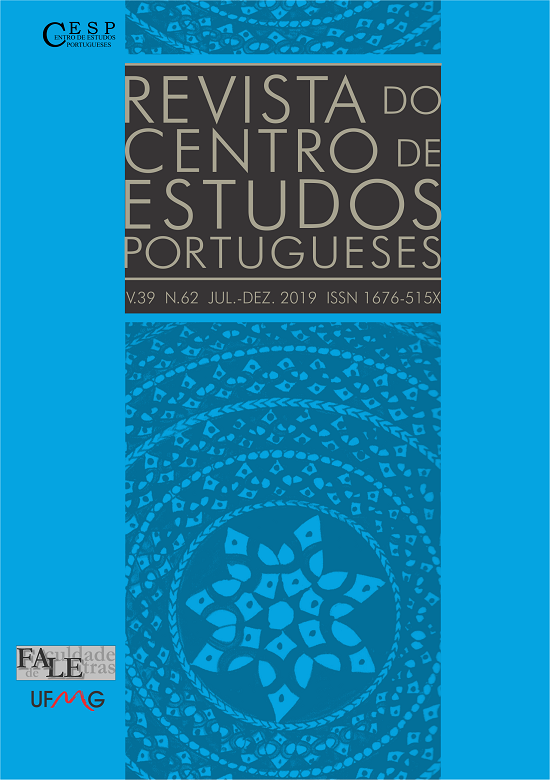A noite das mulheres cantoras e ressonâncias coloniais / The Night of the Singing Women and Colonial Resonances
DOI:
https://doi.org/10.17851/2359-0076.39.62.81-97Keywords:
Lídia Jorge, literatura portuguesa, romance português contemporâneo, literatura de autoria feminina, sociedade do espetáculo, Portuguese literature, contemporary Portuguese novel, female authored literature, society of the spectacle.Abstract
Resumo: Com a publicação do romance intitulado A noite das mulheres cantoras, em 2011, Lídia Jorge lança-se a perscrutar o efêmero cenário da música pop numa trama envolvente, a qual não somente aponta para importantes aspectos da vida cultural portuguesa, mas também demonstra certa ousadia autoral em transformar em matéria literária os meandros do espetáculo midiático e suas contradições. Pelas palavras da escritora, “na história de um bando conta-se sempre a história de um povo”, logo, o quinteto vocal entregar-se-á de modo fáustico não a uma grande causa, mas à busca desmesurada pelo estrelato, diante do qual parece não importar valores éticos, estéticos e ideológicos a expor, pois, seus corpos a uma inevitável violência não apenas simbólica. Se as aptidões artísticas unem as personagens nesse peculiar microcosmo que certamente privilegia o universo feminino, o fato de pertencerem a famílias de retornados amplia a mensagem que subjaz à narrativa: a derrocada do império português em África e a retomada da democracia. Portanto, antigos fados ou os célebres versos de “Uma casa portuguesa” ficarão para trás ante o ritmo frenético dos novos tempos. Ora, é Portugal mais perto do chamado mundo globalizado e a distanciar-se da longa noite salazarista. Enfim, este pequeno estudo terá como aporte teórico, entre outros, as reflexões de Eduardo Lourenço, Roland Barthes e Guy Debord e servirão para o cotejo do referido romance, cuja crítica parece apresentar lacunas, não obstante a vigorosa letra de uma das mais consagradas escritoras da literatura portuguesa.
Palavras-chave: Lídia Jorge; literatura portuguesa; romance português contemporâneo; literatura de autoria feminina; sociedade do espetáculo.
Abstract: With the publication of the novel entitled The night of the singing women, in 2011, Lídia Jorge looks closely at the ephemeral scene of the pop music in an engaging plot, which not only points to important aspects of Portuguese cultural life, but it also demonstrates a certain authorial boldness in turning into literary matters the intricacies of the media spectacle and its contradictions. In the words of the writer, “in the history of a band one always tells the story of a people”, so to achieve fame, the vocal quintet will not care about ethical, aesthetic and ideological values that will expose their bodies to unavoidable violence that is not just symbolic. If artistic skills unite the characters in this peculiar microcosm, which certainly favors the female universe, the condition of belonging to returnee families expands the message that underlies the narrative: the collapse of the Portuguese empire in Africa and the resumption of democracy. So old fados or the famous verses of “A Portuguese Home” will be left behind in the frenetic pace of the new times. Now Portugal is closer to the so-called globalized world and moving away from the long Salazar night. Finally, this small study will have as theoretical support, among others, the reflections of Eduardo Lourenço, Roland Barthes and Guy Debord will serve for the analysis of this novel, whose criticism seems to have gaps, despite the vigorous writing of one of the most famous writers of Portuguese literature.
Keywords: Lídia Jorge; Portuguese literature; contemporary Portuguese novel; female authored literature; society of the spectacle.










